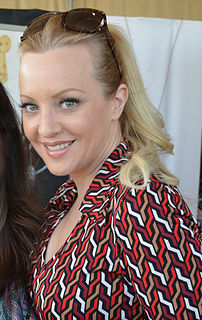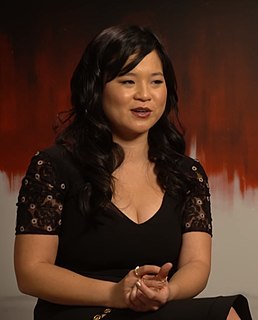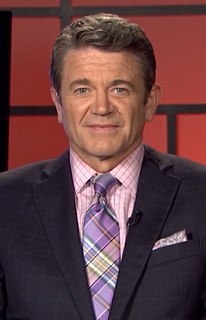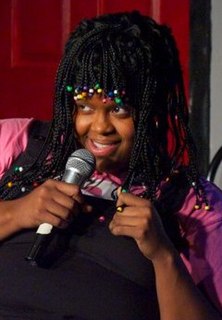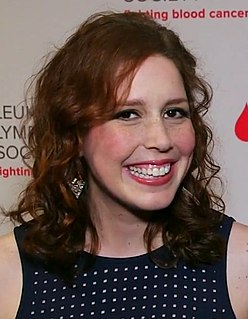A Quote by Wendi McLendon-Covey
Improv is more than just spitting out a bunch of funny stuff that's unrelated to the material. You have to stay in character, you have to react and respond as the character you're trying to play. You have to service the story, and I think improv training has helped with my listening, responding, and my audition technique. It's sounds so silly, but it's true. Because not only do you improvise during the audition, but once you get the part, they'll say, "Throw away everything. Just improv this scene. Do whatever you want." Someone could panic if they're not used to doing something like that.
Quote Topics
Audition
Away
Because
Bunch
Character
Could
Do Whatever You Want
Doing
Everything
Funny
Funny Stuff
Get
Helped
Improv
Improvise
Just
Like
Listening
Material
More
Once
Only
Out
Panic
Part
Play
React
Respond
Responding
Say
Scene
Service
Silly
Someone
Something
Sounds
Spitting
Stay
Story
Stuff
Technique
Than
Think
Throw
Training
True
Trying
Unrelated
Used
Want
Whatever
Related Quotes
There's different kinds of improv. There's Second City improv where you try to slowly build a nice sketch. There's stuff you do in college coffee houses where you just go joke, joke, joke. Bring another funny character with a funny hat on his head. Christopher Guest is more the line of trying to get a story out.
I think sometimes when people start doing improv there's some regression towards trying to replicate the "good" improvisers that they've read about in their improv books or heard about from their teachers. That's understandable, because they're trying to learn technique and stuff, but I actually think that my favorite performers are ones who have unique improv technique but also have a unique point of view that you can feel with them and their performances.
I think with improv - and I say it all the time because it's become such a catch thing that you talk about improv - if the scene is well-written, you don't need to improv. But that being said, if something strikes you in the moment and, most importantly, you know where the scene is supposed to go, it's no different than method acting.
Ladies like improv stilts, and I think men like improv giant cocks. But one of the great things about improv is that you get to play some roles you'd never get to play otherwise, you know, like the old Italian pizza-maker who's passing on the business down to his son. You get to play it all when you improvise.
I think in the inception and creation of the characters, improv was the most important part for me, because I wanted to feel at home in those characters. I wanted to feel like I could commit to them. And so much of improv is saying yes and committing, so I think that's where the improv came in. Even if I'm saying yes to the X across the room from me, or the tennis ball on a stick, I have to stay alive.
And writing comedy and it really taught me how to kind of like craft jokes, it sounds like weird but really focus on crafting jokes and trying to make the writing really sharp. At the same time I did improv comedy in college, and that helped with understanding the performance aspect of comedy, you know, because it's different when you improv something vs. when you write it and they're both kind of part of my process now.
I was on the improv team in high school, and after I graduated, I joined an improv company that had been established 10 years prior to me getting there. They did longform improv, and I fell in love with it. It's acting, character creation, collaborative, artistic expression and comedy - and it's scary. It was a big rush.
